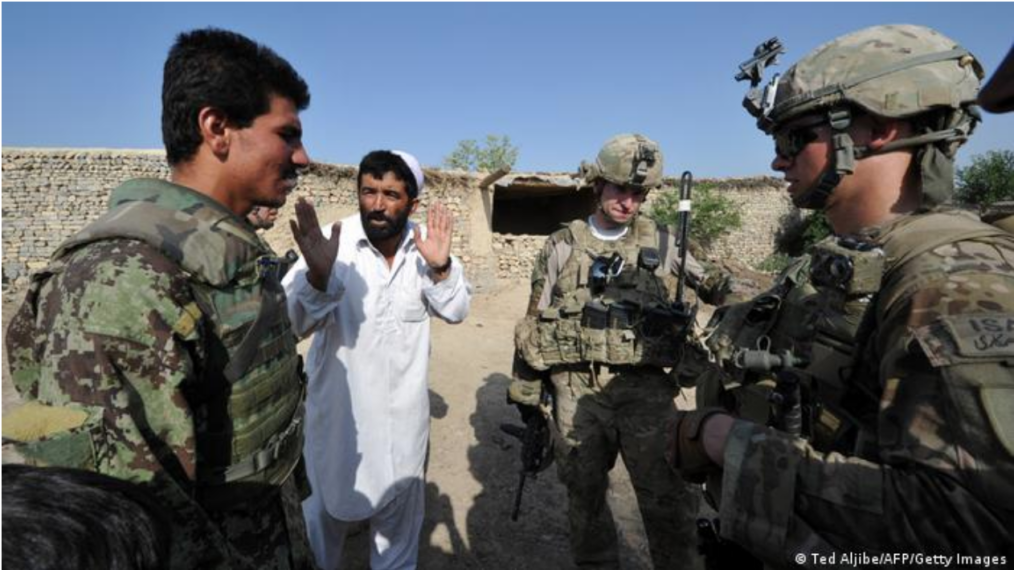
Afghan Interpreters, the Peace Process, and the Future of Indigenous Support for US Combat Operations
As the United States prepares for its withdrawal from Afghanistan, discussions have continued about the fate of Afghan interpreters who played a vital role in US combat operations. These interpreters not only served as bridges to language barriers between soldiers and Afghan communities but also as cultural advisors to US soldiers. Their area knowledge and translations saved numerous US lives during the two-decade presence in Afghanistan.
The Current Challenge:
Because of insufficient awareness about interpreters, international media outlets have played a vital role in spreading the plight of those still in Afghanistan. After weeks of dialogue and advocacy, the first group of Afghan interpreters and their families arrived at a Virginia military base. This was to await the final process of their Special Immigrant Visas (SIVs) and escape likely retribution from the Taliban. The Department of Defense has planned additional emergency airlifts to evacuate approximately 3,000 more interpreters and their families.
The success or failure to evacuate most Afghan interpreters has great strategic implications for the United States. Consequently, it will affect its future combat operations in the long term. The Biden administration must not betray these local heroes, as it will compromise the United States’ reputation as a force for good at a time of global consternation about democratic legitimacy. In understanding the historical role of Afghan interpreters, it becomes evident that their fears of abandonment have persisted for years and that preserving their trust will require policymakers to make difficult decisions.
A Rocky History:
The phrase “winning hearts and minds” underscores the importance of local support during the war. For many conflicts like the Soviet occupation of Afghanistan, French operations in Vietnam, and even the American Revolution, lack of support for invading forces by the local populace foreshadowed inevitable failure. Indigenous support is so important in winning conflicts, that the US military has a unit dedicated to strengthening these partnerships, the US Army Green Berets. Local support from interpreters was crucial in the United States’ toppling of the Taliban. Local support also helped lay the foundation for a political solution to the conflict.
Although there is little data about the first interpreters who began working for US forces, it is highly likely that demand for their language abilities began and continued shortly after conventional troops began deploying to Afghanistan. Even before conventional forces, Green Beret and CIA officers relied heavily on translators to coordinate airstrikes, understand enemy maneuvers, and map partner forces to begin the initial offensive against the Taliban.
But interpreters and their families faced increased threats from Taliban retribution as coalition operations surged in 2007. The Obama administration’s 2014 initiative to withdraw the remaining US forces from Afghanistan foreshadowed the bureaucratic hurdles and anxieties encountered by interpreters during the drawdown. Many felt betrayed by the lengthy visa process, especially by unexplained rejections when they satisfied all requirements. Their families were constantly threatened by the Taliban, eventually forcing them to abandon wives and daughters during the lengthy visa process.
Their journeys to escape death were often unpredictable and expensive, relying on smugglers to ferry them to Iran, Greece, and Western Europe. Those who did not have funds to cover the entire journey were left in countries with nothing but false documents, eventually becoming homeless as countries failed to support them with refugee status or jobs. Those who suffered the most in escaping Afghanistan started to regret serving US troops, setting a dangerous precedent for the future of local cooperation in the age of major power competition. This is particularly concerning because local support will become more crucial as major powers like the US, China, and Russia rely on proxies in various countries to achieve their foreign policy goals.
The Need to Do More:
The newest arrival of the Afghan SIV applicants is a welcome development. However, this is insufficient because some reports indicate that the Defense Department would have to conduct 16 evacuation flights per day leading up to the August 31 deadline to account for all SIV applicants in Afghanistan. The US and Coalition governments are moving far too slow and risk sending a message to the world that they will not fulfill promises to local partners in conflict. Maintaining the reputation of democracies around the world has become increasingly important if the West hopes to combat a rising China.
If the US government fails to secure the safety of interpreters and leaves them marked for death by the Taliban, local allies in strategically important countries are less likely to work with American forces in the event of a conflict. Peace in these regions will be less attainable without this robust local support for US or allied forces.
It is not logistically possible to evacuate all SIV applicants, but the State and Defense Departments need to allocate more planes, diplomats, and locations to process at least 40-50% of SIV applications and ferry them from the Taliban retribution. They should also increase transparency regarding why applicants are denied. These actions would enhance American soft power and foster trust in the local population crucial to the success of a military campaign. Biden administration should look at evacuating interpreters as a strategic imperative, one that may play a driving factor in an era defined by state competition. Afghan lives and successful US strategy hang in the balance.
